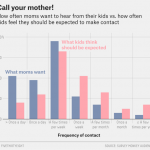Last week, I really enjoyed the conversations sparked by my post on seven common atheist misconceptions about Catholicism (inspired by Jen’s post that covered the vice versa problem). This week, I want to highlight some of the resources and clarifications that people contributed to the post. I should have a guest post or two going up soon in response to atheist questions about how Catholics read the bible, but I’d welcome more contributors. Check out this call for exegetical guest posts for details.
Or, if exegisis isn’t your style, but you want to help make your religion a little more understandable to all us atheists, take a cue from Julie at A Room with a View. She’s been looking through the comments of the post that asked for challenging questions for Christians, and she’ll be taking a crack at a few of them here, so watch this space and think about whether you want to join her.
A lot of the misunderstandings seemed to be rooted in some misunderstandings of how technical and specific Catholic prohibitions are on certain behaviors. Luckily, this week, Simcha Fisher of I have to sit down wrote a very helpful piece about Catholic approaches to avoiding pregnancy (specifically using NFP). Simcha does a good job explaining how the Church can provide general guidelines for moral behavior, but it would be counterproductive to try to make exhaustive lists of acceptable and unacceptable actions.
In plenty of ways, the whole thing is an extension of Aristotle’s idea of practical wisdom. The purpose of Catholic morality isn’t to give you an answer key to look up the right answers to all moral quandaries; the real goal is to inculcate the right kind of attitude and experience to lead you to pick out the right answer and understand why it’s right. It’s a lot harder, but a lot truer than the list-of-answers approach.
Mind you, some religions are quite rule-based (and I tend to personally find them a lot less compelling). NFQ wrote an interesting post this week on the technicalities of the Jewish Sabbath in the polar regions where sunset may not occur for months. The workarounds are baffling and seemingly arbitrary. If anyone has a decent apologetic argument about these laws and their apparent incompatibility with the natural world, I’d love to hear it. As it is, I agree with NFQ that this kind of quirk makes Judaism (and Christianity as well) seem less plausible to me.
A lot of people correctly pointed out that many of the misconceptions I was trying to debunk weren’t just myths about Catholics, but in fact were myths about almost all Christians except the fundamentalist evangelicals (who apparently have a really good PR team). So, to make up for my omission, I want to highlight a post by Richard Beck of Experimental Theology, a Christian of I’m not sure what denomination. He presents a pretty understandable (even to laypeople) of why he’s a universalist and thinks that position is perfectly compatible with God’s mercy and God’s justice. Here’s a quick excerpt:
One root of the problem with the traditionalist view is this notion that God is schizophrenic. God is like Gollum in The Lord of the Rings. God’s got this loving side and this justice side. And you get either one or the other. If you accept Jesus into your heart you get the loving side and skip the justice side. Conversely, if you reject Jesus you get the justice side and miss the loving side. But you never get both at the same time.
To be quite frank, this whole notion that God can’t love you because his justice has to be satisfied is, well, nice words fail me. Maybe you have to be a parent to really get this, but my love for my kids is the same as my “justice.” If my son throws a ball through a neighbor’s window it’s neither loving or just to let him just walk away. My love and my sense of justice aren’t battling it out inside of me to determine which side of me my son will experience. No, it is both loving and just–and this is the key–to get my son to walk over to the neighbors, ring the doorbell, and face the music. Love and justice are the same thing. This is the great insight at the heart of the theology of George MacDonald.
I found it pretty compelling (but, of course, I loved The Great Divorce, which seems pretty similar). If you need a crash course in the common disputes in Christianity about who gets saved, Timothy Dalrymple had a great summary at Patheos.
This week, a new study from the Public Religion Research Institute drove home the point that an individual’s views, for better of worse, may not much resemble those of the church they affiliate with. According to the PRRI’s surveys:
Catholics are more supportive of legal recognitions of same-sex relationships than members of any other Christian tradition and Americans overall. Nearly three-quarters of Catholics favor either allowing gay and lesbian people to marry (43%) or allowing them to form civil unions (31%). Only 22% of Catholics say there should be no legal recognition of a gay couple’s relationship.
When same-sex marriage is defined explicitly as a civil marriage, support is dramatically higher among Catholics. If marriage for gay couples is defined as a civil marriage “like you get at city hall,” Catholic support for allowing gay couples to marry increases by 28 points, from 43% to 71%. A similar pattern exists in the general population, but the Catholic increase is more pronounced.
Beyond the issue of same-sex marriage, Catholic support for rights for gays and lesbian people is strong and slightly higher than the general public. Nearly three-quarters (73%) of Catholics favor laws that would protect gay and lesbian people against discrimination in the workplace; 63% of Catholics favor allowing gay and lesbian people to serve openly in the military; and 6-in-10 (60%) Catholics favor allowing gay and lesbian couples to adopt children.
Oh, and did I mention:
A majority of Catholics (56%) believe that sexual relations between two adults of the same gender is not a sin. Among the general population, less than half (46%) believe it is not a sin.
(h/t First Things)
I’d hate to leave out atheism from any list of beliefs that have the dual misfortunes of being often strawmanned and frequently ending up with leaders who closely resemble those strawmen. Alex Knapp did a rundown of bad arguments for atheismthis week that’s worth looking over. Not all of the argument he skewers are entirely invalid, but even the best ones are often lazily defended, so it’s good to have a read through and tighten up our logic.
If you found these quick takes through Jen’s blog, I’d like to recommend you also take a look at the two pieces I wrote in response to her criticism of an atheist awareness week. The first focuses on reasons why atheists need to be visible as atheists, the second focuses on what prompts ‘nasty’ atheism and how to curb that kind of rhetoric.
But hey, if you wanted to skip all that intervening nuance and get down to the toughest questions about religion, perhaps you should check out this professor’s comment from the Overheard at Yale Div School blog:
“Any faith tradition worth its salt will tell you what to do with your food, your time, your genitals, and your money. Otherwise it’s not a real religion.”
Glad all that’s cleared up now.
[Seven Quick Takes is a blog carnival run by Jen of Conversion Diary]
















